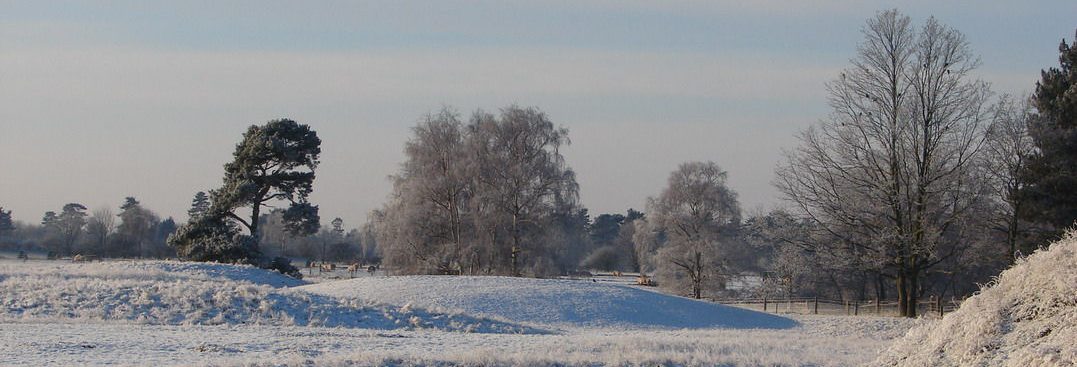This is a page about the close relation between the Anglo-Saxon rite of mound-burial and the genre of Old English royal genealogical poetry. I discuss this matter in much more detail in Chapters Two and Three of my book, The Origins of Beowulf [D.S.Brewer 1993].
Have you ever wondered how the Wuffings remembered who was buried in each of the mounds? There seems to be no evidence of gravestones or markers of any kind. Each mound could have been named after its occupant, as is indicated elsewhere by certain place-names such as Taplow, the hlæw, or mound, of an unknown Middle Saxon called Tappa. If the names of mounds can become place-names, then the names of the individuals buried in them are preserved, but what of their deeds? The most likely way that the deeds of those buried in the mounds of Sutton Hoo would have been remembered was through the medium of poetry. Each mound, in other words, would have been associated with at least verse or two, and the individual memorial verses when orchestrated would form a family genealogical poem.
Examples of such genealogical poetry are preserved in Old Norse sagas, such as Ynglingatál, ‘The Tally of the Ynglings’, attributed to Thjóðólfr of Hvin, court poet of the Yngling dynasty of the Norse kingdom of Vestfold during the late ninth century. Snorre Sturluson incorporated Ynglingatál as one of his main sources for his Ynglinga Saga, which forms the opening book of his great saga of the Norse kings, Heimskringla. The verses of Ynglingatál provide regular information on the circumstances of the deaths and places of burial of many of the Yngling line, some of whom are said to have been buried at Borre.
Ynglingatál and other Old Norse royal genealogical verse help to amplify the echoes of the genre found in the Old English poetry, such as in the epic of Beowulf and in the heroic catalogue poem Widsith. Although an Old English genealogical poem concerned directly with the Wuffings has not survived, the existence of such a poem is indicated by a reference in the Passio of the late eighth-century East Anglian king and martyr, St Æthelbert.
On the basis of this reference, and drawing on the echoes of genealogical verse in Old English heroic poetry, I have attempted to replicate such a poem about the Wuffings, which I have called the Wuffingagetæl, the ‘Tally of the Wuffings’. I suggest that its opening might have sounded something like this in Old English (followed by a translation into modern English):
Hwæt we ærwilum Wuffinga
þeodena þrym gefrunon,
hu þa wulfcyningas weoldon
æþeleard EstEnglelond?
Hwa mæg segeð soðe mære,
on hwilcum beorgum eacenbanas gebidian?
What have we heard of the heroism of the Wuffing folk-lords of long ago,
of how those wolf-kings commanded East Anglia’s ancestral soil?
Who can tell of their true fame, or in which barrows their mighty bones sleep?
I composed these lines in 1989 and published them in Wiðowinde (Newsletter of the Old English Companions), Vol. LXXXVII (1990), pp.22-26. I also published there an imaginative poem in more modern English, but in the Old English epic style, on the deeds and death of King Rædwald, which I called Hrædwaldeshrim, ‘The Reckoning of Rædwald’.
© Dr Sam Newton, AD 2000, 2014

